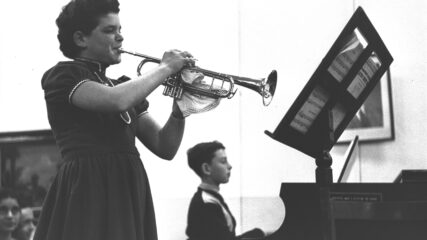February 21, 1955
Former Prime Minister David Ben-Gurion ends his 14-month semiretirement from politics to replace Pinhas Lavon as the defense minister in Prime Minister Moshe Sharett’s Cabinet. Ben-Gurion has remained a member of the Knesset for the dominant Mapai party but has not held a government post since resigning as prime minister in December 1953.
Ben-Gurion’s surprise return is meant to prevent a government crisis but is arranged without consultation with Mapai’s coalition partners. Sharett says Lavon’s resignation results from the prime minister’s refusal to implement Lavon’s proposed changes to the national defense. But the core reason is what comes to be known as the Lavon Affair, a covert operation whose failure is blamed on Lavon.
Code-named Operation Susannah, the false-flag mission launched in the summer of 1954 involved Unit 131, a cell of Egyptian Jews recruited in 1948 and working secretly in several Egyptian cities under the direction of Israeli military intelligence. The operatives’ assignment was to bomb Egyptian-, British- and American-owned civilian targets, such as post offices, movie theaters, libraries and schools, but to make it appear that members of the Muslim Brotherhood, Egyptian Communists or other nationalists carried out the attacks. The goal was not to hurt anyone — the bombs were small and set to detonate after hours to prevent casualties — but to spark unrest that would justify a decision by the British to retain control of the Suez Canal.
A tip from an Israeli agent working with the Egyptians led to the capture of 13 members of the spy cell. Two of the Egyptians Jews committed suicide in jail. Two were executed after a trial that ended in late January 1955, and several others were sentenced to long prison terms. Two men were acquitted.
Lavon denied knowing about the operation and tried to blame Shimon Peres, the Defense Ministry’s director general, but after an inconclusive internal Israeli inquiry, Sharett blamed Lavon, forcing his resignation.
Sharett didn’t know about Operation Susannah, but the controversy and tensions with Ben-Gurion, who operates the Defense Ministry autonomously, lead Sharett to resign during the summer. Ben-Gurion is again elected prime minister, only to see the Lavon Affair arise as a controversy again and force his resignation in January 1961.



